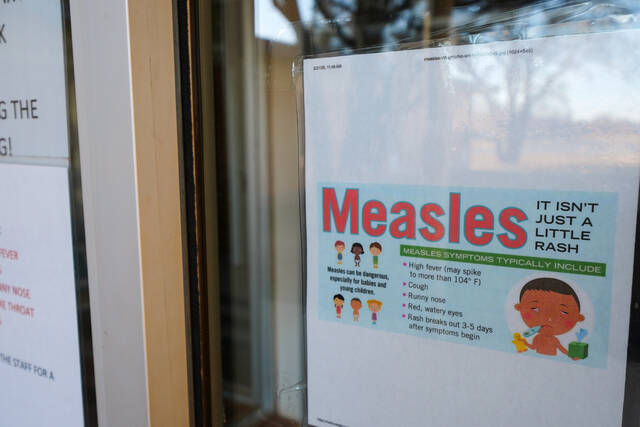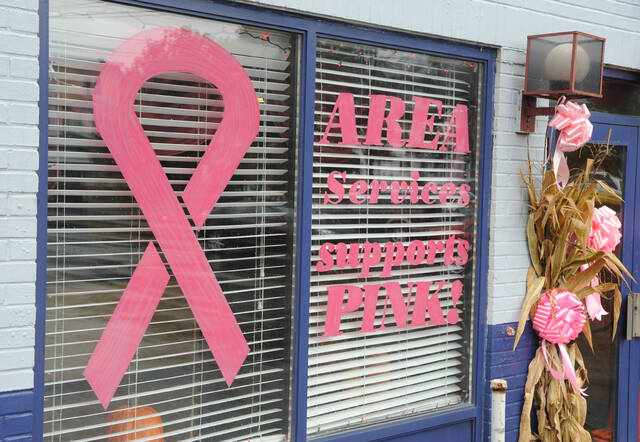UPMC and the staffing agency that placed with them a radiology technician who infected dozens of patients with hepatitis C continue to battle over who should bear the cost of millions of dollars in court settlements.
Court documents show UPMC has paid more than $4 million to settle litigation over the actions of David Kwiatkowski, who worked for the health care giant for just over two months in 2008. He was terminated after hospital officials discovered he was stealing patients’ fentanyl to use on himself and replacing their syringes with saline.
Kwiatkowski went on to work at nine other hospitals in multiple states over the next four years and ultimately infected 45 patients with hepatitis C, including one who died.
He pleaded guilty to criminal charges in 2013 and is serving 39 years in prison.
UPMC was the subject of multiple lawsuits that have since been settled. Now the health system is trying to recoup that money from Maxim Healthcare Services, the Maryland-based agency that placed Kwiatkowski with UPMC.
“Maxim and its personnel solely caused all of UPMC’s damages,” UPMC’s attorney wrote in an arbitration demand on Nov. 9.
But Maxim, in a petition to stay arbitration filed Tuesday in Allegheny County Common Pleas Court, alleges that UPMC is not entitled to any money from Maxim. The staffing agency said it has been the subject of threatened lawsuits and strong-arm tactics by UPMC for more than a year.
Maxim attorneys wrote that Tuesday’s petition “arises from UPMC’s attempts to extort monies from Maxim for liabilities and associated decade-old claims that — as between Maxim and UPMC — are solely and exclusively the responsibility of UPMC” based on a 2018 Pennsylvania Supreme Court decision.
The tactics used by UPMC, Maxim said, include numerous false threats to file a lawsuit and “demands that Maxim pay exorbitant and unsubstantiated amounts in order to avoid the filing of UPMC’s draft complaint.”
Maxim also alleged that UPMC has conducted aggressive discovery during the process and deposed five current or former Maxim employees and subpoenaed thousands of pages of documents from the company.
Kwiatkowski was placed at UPMC Presbyterian Shadyside as a radiology technician from March 17 to May 7, 2008, and was fired when it was discovered that he was diverting drugs from patients.
Maxim claims in its petition that UPMC conducted a drug test of Kwiatkowski when he was terminated but never shared the results of that test, and a test Maxim conducted was negative.
Maxim said without knowing the results of UPMC’s drug test, the agency placed him with another hospital.
“It was only years later that Maxim first learned that UPMC’s drug test had come back positive, and — further — that UPMC failed to advise the relevant regulatory authorities of that positive drug test as it was required to do by regulation.”
After Kwiatkowski’s actions were uncovered, several lawsuits were filed, including a class-action in Pittsburgh. That suit named both UPMC and Maxim as defendants.
Both defendants settled the class action in 2016, with each entity sharing the financial cost.
Four other individual lawsuits against UPMC and Maxim were filed on behalf of former patients of Kwiatkowski in Kansas. Those were consolidated in Allegheny County Common Pleas Court, and the trial court ruled in favor of the defendants, saying that they owed no duty of care to the plaintiffs since they were infected years after Kwiatkowski had been terminated.
While the state Supreme Court upheld that decision with regard to Maxim — and dismissed the company from the case — it ruled against UPMC.
The court found that UPMC did owe a duty of care to the patients based on federal and state drug reporting statutes. It remanded the consolidated cases for trial. They have since settled, according to documents attached to Maxim’s petition.
But in October 2020, attorneys for UPMC sent draft complaints to Maxim, threatening to sue the agency if it “did not capitulate to UPMC’s unsubstantiated and ever-increasing monetary demands.”
UPMC threatened to file a suit on Nov. 25, 2020, but did not.
In December, the petition said, Maxim’s counsel suggested the parties attempt to resolve the issue through mediation or a discussion among high-level executives, but UPMC refused. UPMC sent another revised complaint on April 22, and said it would be filed eight days later if the case wasn’t resolved.
“UPMC then nearly doubled its monetary demand to settle its claims against Maxim,” Maxim’s petition said.
The lawsuit was never filed.
Then, in June, UPMC sent Maxim’s attorney a letter indicating it was willing to try mediation.
“That newfound willingness demonstrated that UPMC’s abusive and bad faith tactics were a tremendous waste of time, money and effort, and that UPMC’s ‘capitulate or litigate’ mantra was no more than a classic bullying tactic.”
A mediation session held on Oct. 5 was unsuccessful, and just over a month later, UPMC sent the arbitration demand. In the document, UPMC said it has been forced to settle multiple lawsuits costing the hospital system more than $4 million.
In UPMC’s description of the dispute, it said that after Kwiatkowski was terminated, the hospital system immediately reported his actions to Maxim and the state Attorney General’s Office.
In its opinion, though, the state Supreme Court found that UPMC failed to report the drug diversion to the Federal Drug Enforcement Administration within one business day, as was required under the Controlled Substances Act.
UPMC said that through recent deposition testimony of Maxim employees, it was revealed that Maxim and its personnel “intentionally, recklessly and/or negligently generated false and incomplete records” regarding Kwiatkowski’s background screening, placement, investigation and reporting.
UPMC alleged that Maxim falsely certified that Kwiatkowski passed a background check even though he had a DUI in his criminal history. UPMC also alleges Maxim falsely certified that Kwiatkowski passed his required competency test and that Maxim fabricated his references.
“Had Maxim actually checked (Kwiatkowski’s) references … it would have learned and informed UPMC of (his) history of suspected fentanyl theft from multiple hospitals,” UPMC wrote.
Kwiatkowski had been suspended from two hospitals in Michigan in 2006 and 2007.
“If not for Maxim’s fraud and other tortious conduct, UPMC never would have allowed Maxim to place (Kwiatkowski) at UPMC,” the demand said.
UPMC alleges that Maxim’s behavior was part of a “broader scheme of systemic fraud.”
According to the Department of Justice, Maxim entered into a deferred prosecution agreement with the U.S. Attorney in New Jersey in September 2011 in which the agency admitted to defrauding federal Medicaid and Veterans Affairs programs of about $61 million from 2003 to 2009. As part of the agreement, Maxim agreed to pay $20 million as a criminal penalty and an additional $130 million in civil settlements.
As part of Maxim’s admissions, UPMC wrote, it included that the agency falsified documentation regarding caregivers’ qualifications.
“This is precisely what Maxim did regarding (Kwiatkowski’s) placement at UPMC, then elsewhere, after UPMC terminated him,” UPMC attorneys wrote.
UPMC said that Maxim admitted that its regional director of clinical services in 2012 had fabricated an email to make it appear she had reported Kwiatkowski in 2009, even though she did not.
Messages left with UPMC and Maxim’s attorney were not immediately returned.
Financial records released Tuesday showed that UPMC, headquartered in Downtown Pittsburgh’s U.S. Steel Tower, is on pace for another record year of billion-dollar revenue growth. UPMC employs more than 92,000 people, making it Pennsylvania’s largest non-government employer.








